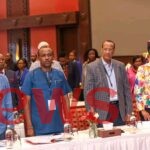Hachalu Hundeessa was a prominent Ethiopian musician and songwriter, who used his music as a tool to advocate for the rights and recognition of the Oromo people, Ethiopia’s largest ethnic group.
His powerful and emotionally charged songs resonated with millions and earned him a devoted fan base. However, his tragic and untimely death in 2020 left a profound impact on Ethiopia and the global Oromo community.
This article aims to shed light on Hachalu Hundeessa’s life, his musical contributions, and the legacy he left behind.
Early Life and Musical Journey: Hachalu Hundeessa was born on June 9, 1985, in Ambo, a town in the Oromia region of Ethiopia.
Growing up in a politically charged environment, he witnessed the injustices and marginalization faced by the Oromo people. Hachalu was deeply moved by these experiences and resolved to use his musical talents to give a voice to the voiceless and shed light on the struggles of his community.
In the early 2000s, Hachalu Hundeessa began his musical journey, initially performing at local events and gatherings. His soulful voice and poignant lyrics soon gained attention, and he quickly rose to prominence within the Oromo music scene.
His songs often touched upon themes of identity, culture, history, and the political issues faced by the Oromo people.The Rise to National and International Fame:Hachalu’s music not only resonated with the Oromo community but also struck a chord with Ethiopians from various backgrounds.
His songs provided a glimpse into the realities faced by marginalized groups and the need for social justice and equality. As his popularity grew, Hachalu became a symbol of hope and resilience for those who sought change in Ethiopia.One of his most famous songs, “Maalan Jira” (What Existence is Mine), became an anthem for the Oromo protests that began in 2015.
The song reflected the frustrations and aspirations of the Oromo people and played a pivotal role in mobilizing the community for peaceful demonstrations demanding political and social reforms.
Activism and Challenges: Hachalu Hundeessa’s music and activism made him a prominent figure in Ethiopian society. However, his outspokenness also brought him under scrutiny and led to significant challenges in his career.
He faced government censorship and intimidation, with some of his concerts canceled or banned due to the political nature of his songs.Despite the obstacles, Hachalu remained committed to his advocacy through music, using his platform to raise awareness about the plight of the Oromo people and call for an end to systemic oppression and injustice.
Tragic Passing and Legacy: On June 29, 2020, Hachalu Hundeessa’s life was tragically cut short when he was shot and killed in Addis Ababa.
His death sent shockwaves across Ethiopia and sparked a wave of protests, both within the country and in the diaspora. The Oromo community mourned the loss of their beloved musician and champion of their cause.
Hachalu Hundeessa’s legacy lives on through his music and the impact he had on the Oromo struggle for recognition and equality. His songs continue to inspire and galvanize those fighting for social justice in Ethiopia.
In the wake of his death, the Ethiopian government faced increased pressure to address the grievances of the Oromo people and work towards a more inclusive and democratic society.
Hachalu Hundeessa’s life and music remain a testament to the power of art and culture in advocating for social change and uplifting marginalized communities.
His legacy will forever be intertwined with the ongoing struggle of the Oromo people for their rights and recognition in Ethiopia.
As the country moves forward, his memory serves as a reminder of the importance of embracing diversity, upholding human rights, and fostering unity among all Ethiopians.
Share This Post





